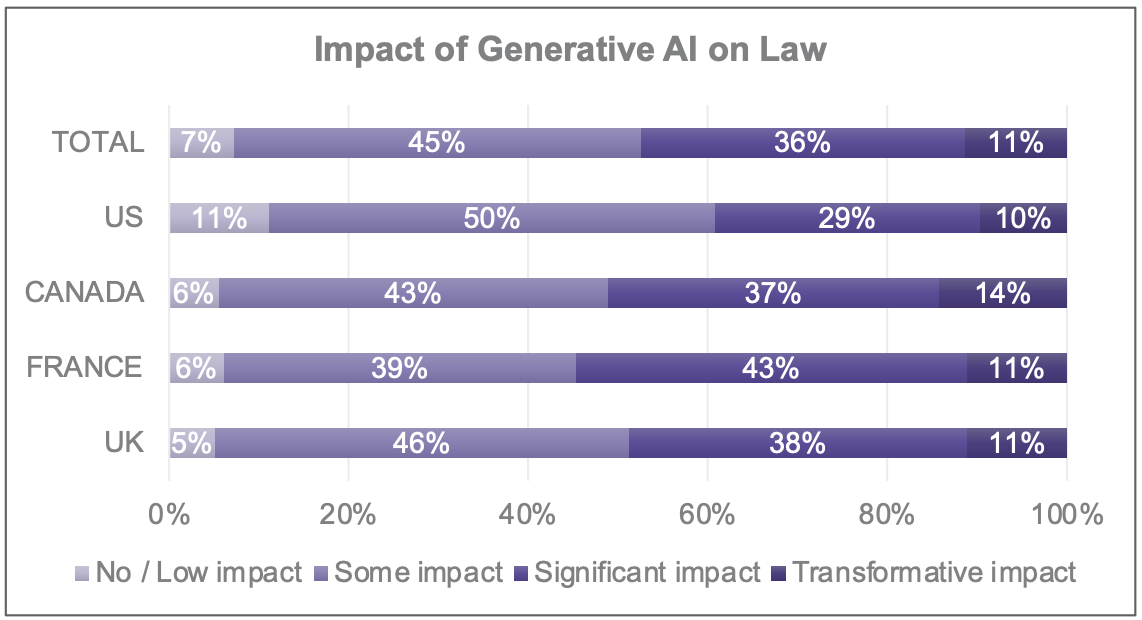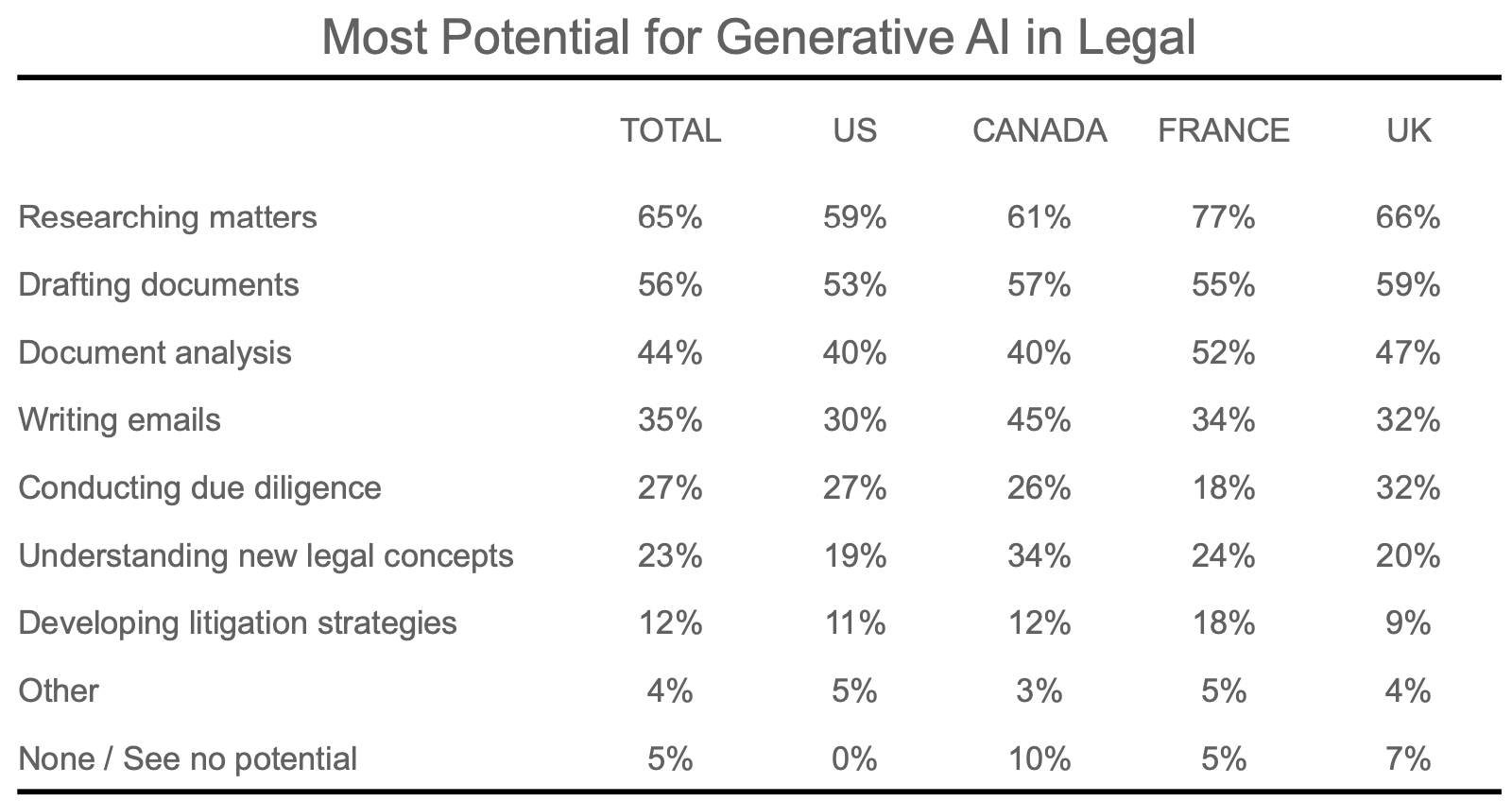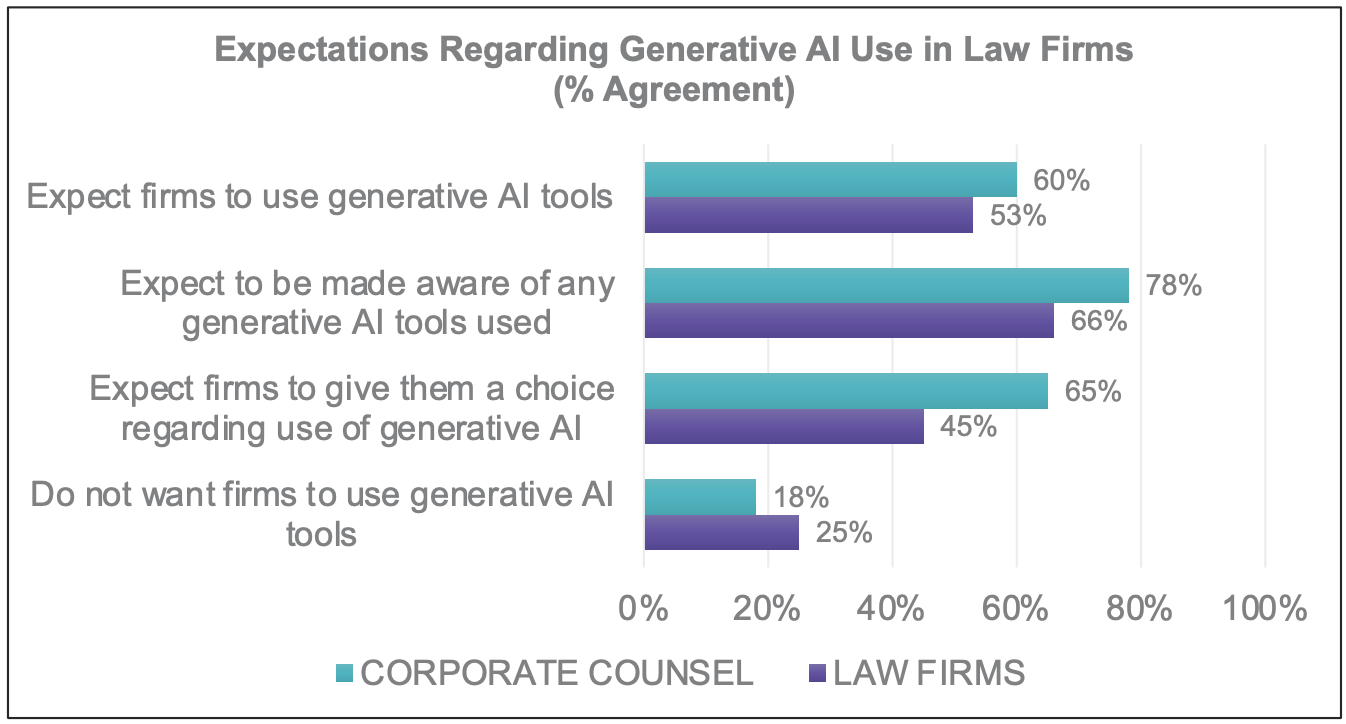 Last month, the OECD released a report declaring lawyers at “high risk” of losing their jobs to artificial intelligence. For this spiciest of hot takes, the venerable international organization cited (a) some AI have passed local bar exams, and (b) an article saying some lawyers are anecdotally “worried” (and then doesn’t even conclude that they’re right!). Let’s just say we were less than impressed.
Last month, the OECD released a report declaring lawyers at “high risk” of losing their jobs to artificial intelligence. For this spiciest of hot takes, the venerable international organization cited (a) some AI have passed local bar exams, and (b) an article saying some lawyers are anecdotally “worried” (and then doesn’t even conclude that they’re right!). Let’s just say we were less than impressed.
A much more serious international survey just dropped from LexisNexis. The International Legal Generative AI Survey asked 7,950 lawyers, law students, and consumers across the U.S., U.K., Canada, and France about generative AI in the law.

Surprise, surprise… the US is behind the curve. While nearly 50 percent of respondents in all the other countries see some or a transformative impact to AI, only 39 percent see it in the US. This might be a function of the media environment. I’m not sure what the other three were saying, but I know the American media lost its collective mind over a couple of attorneys mistakenly using ChatGPT as a caselaw research tool and grandstanding judges threw gasoline on that story.
Though that’s bizarrely contrast to this…

The French are negative about everything? Honestly, the most interesting thing about a survey like this that doesn’t impute meaning upon “impact” is that France and Canada are the two who see the biggest potential for impact and one is the least positive and the other the most positive. In fairness, France doesn’t seem to know what to think, with the highest “unsure” numbers to go with their highest “it will have at least a significant impact!” numbers.

Understanding new legal concepts? That’s a fun way of saying, “hallucinations!”
While US audiences got burned bad some bad research, they still see that it’s the shortest path to an AI use case. Except “researching matters” doesn’t necessarily require generative AI. Technically “AI” has improved research for years pulling key concepts out of the database. There’s absolutely a lot for generative AI to contribute to legal research and taking a nub of an inquiry to the best possible answer — there’s a reason why search engines are clamoring for this flavor of AI — but I suspect most of these respondents are entranced by the idea of an algorithm capable of performing what it’s performed for at least a decade.
Drafting documents seems to be where folks are most excited and for good reason. Litigators are special snowflakes that think every brief has to spring from their head anew like Athena bursting forth from Zeus, but transactional lawyers just want someone to scour the market language and find what’s held up in the past.

What are these GMOs in the early aughts? Labeling for consumers? Not necessarily opposed to that, but seriously, if you don’t trust your attorneys to make the sausage correctly… just find new lawyers.
AI is coming. It’ll bring good and bad, and then settle into normal. It’s Hegelian dialectics distilled for Biglaw readers. Attorneys can open themselves to the moment or not.
Earlier: Lawyers At High Risk Of Losing Jobs To Artificial Intelligence Concludes OECD Based On… Nothing But Vibes
For The Love Of All That Is Holy, Stop Blaming ChatGPT For This Bad Brief
If You Aren’t The One Writing Your Briefs In Texas, It Better Be Some Other Human!
The Legal Industry Has A Long Way To Go Before GPT Matches The Talk
Lexis Unveils New Agreement Analysis Tool
 Joe Patrice is a senior editor at Above the Law and co-host of Thinking Like A Lawyer. Feel free to email any tips, questions, or comments. Follow him on Twitter if you’re interested in law, politics, and a healthy dose of college sports news. Joe also serves as a Managing Director at RPN Executive Search.
Joe Patrice is a senior editor at Above the Law and co-host of Thinking Like A Lawyer. Feel free to email any tips, questions, or comments. Follow him on Twitter if you’re interested in law, politics, and a healthy dose of college sports news. Joe also serves as a Managing Director at RPN Executive Search.






